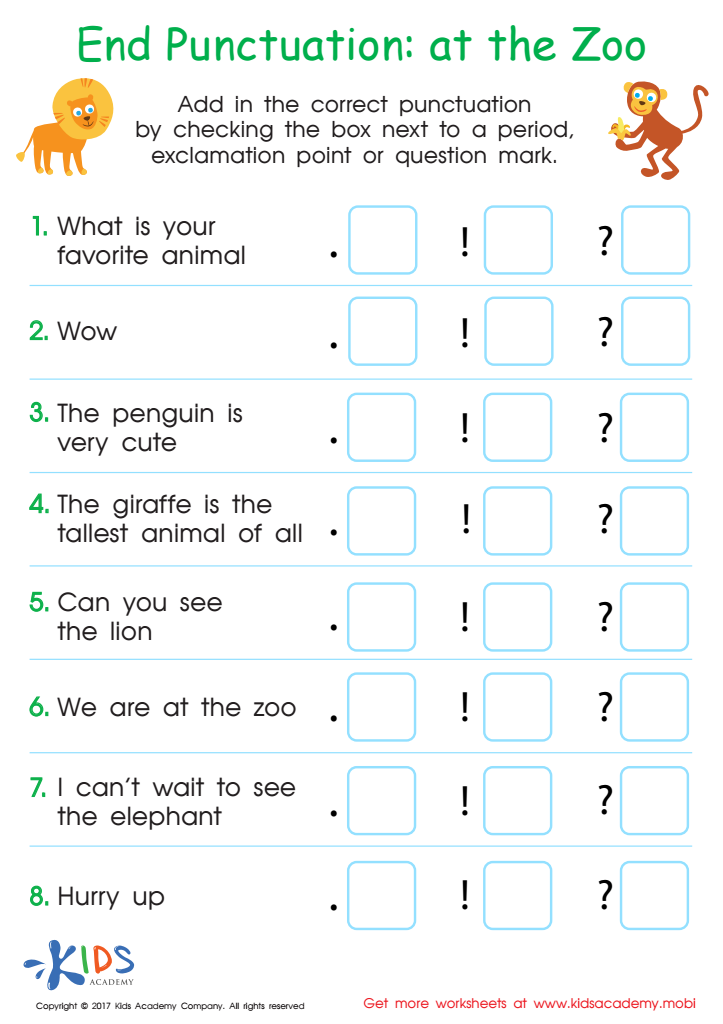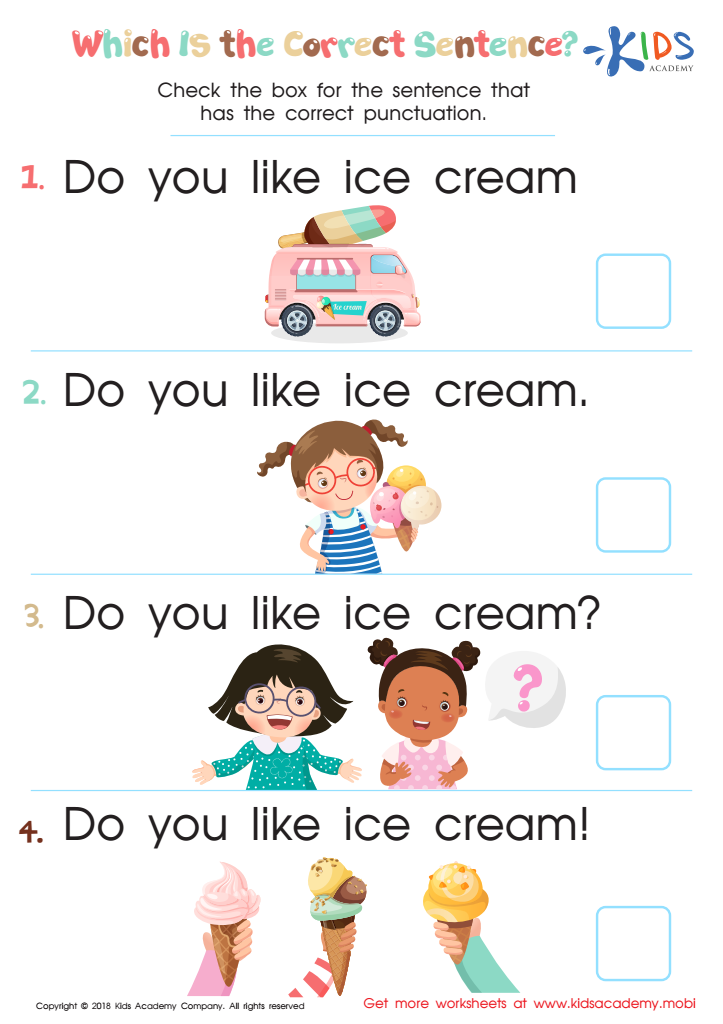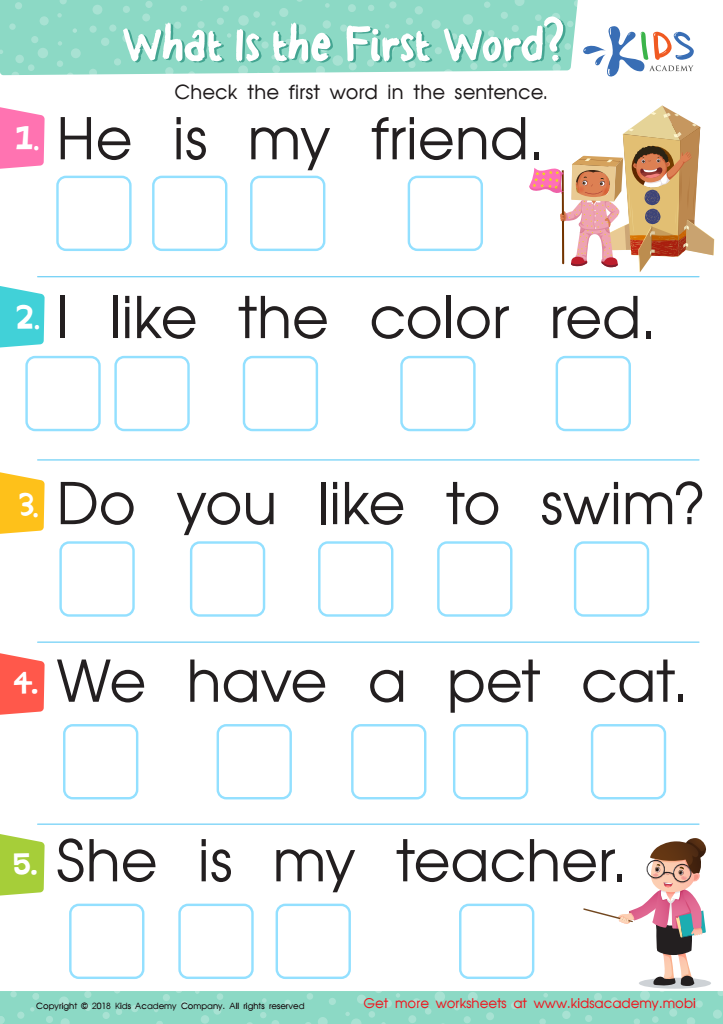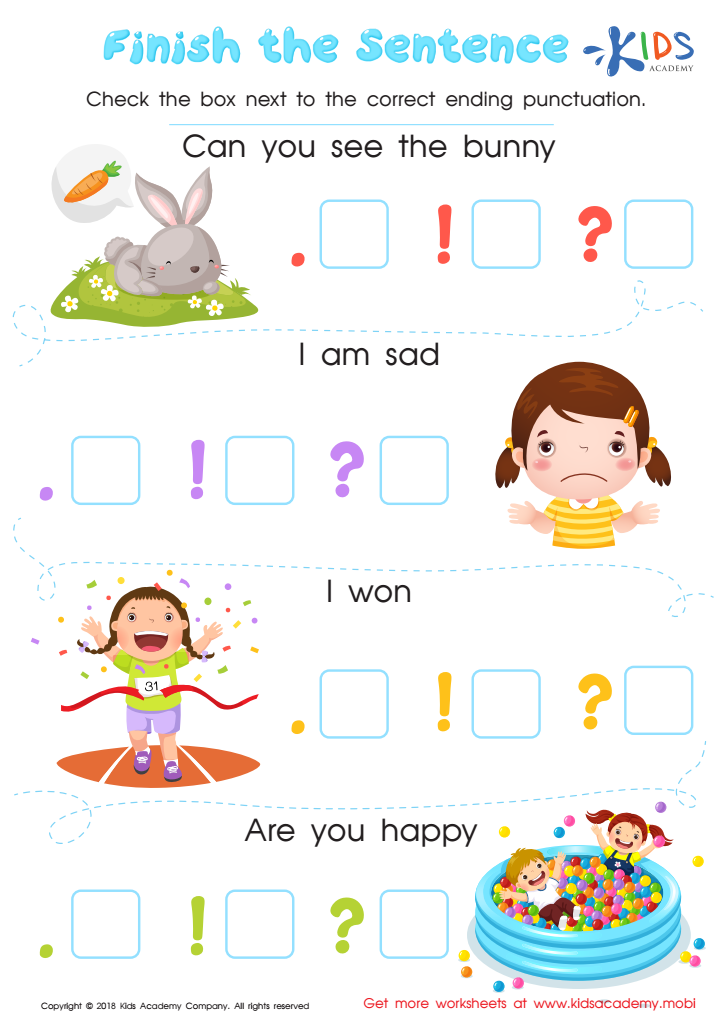Reading comprehension Punctuation Worksheets for 7-Year-Olds
4 filtered results
-
From - To
Enhance your 7-year-old's reading comprehension skills with our engaging punctuation worksheets! Designed to support early readers, these worksheets incorporate essential punctuation practices alongside captivating reading exercises. As children navigate through fun stories and sentences, they will learn how punctuation marks like periods, commas, and question marks shape meaning and clarity in written language. Each worksheet encourages critical thinking and boosts literacy skills in a playful, interactive way. Ideal for classrooms or at-home learning, our resources foster a strong foundation in reading while ensuring children enjoy the learning process. Start your child’s punctuation journey and watch their reading abilities soar!


End Punctuation: At the Zoo Worksheet


Which is the Correct Sentence? Worksheet


What is the First Word? Worksheet


Finish the Sentence Worksheet
Reading comprehension and punctuation are essential skills for 7-year-olds that significantly impact their overall literacy development. Understanding what they read allows children to engage with stories, make connections, and develop critical thinking skills. When children grasp the meaning behind texts, they become more confident readers and more enthusiastic learners.
Punctuation plays a vital role in reading comprehension; it guides the reader on how to interpret the text. For instance, punctuation marks indicate pauses, changes in tone, and the structure of sentences. Mastery of punctuation helps children discern the intended meaning of sentences, enhancing their ability to understand and analyze written materials.
Additionally, when parents and teachers emphasize reading comprehension and punctuation, they promote effective communication skills. These foundation-building elements are crucial not just in early education but throughout a child's life in various contexts, from academic settings to everyday conversations.
Fostering these skills early can lead to a love of reading that lasts a lifetime. Moreover, children who understand and effectively use punctuation are better equipped to express their thoughts in writing, further enriching their academic and personal growth. Supporting children's development in these areas provides them the tools they need for future success.
 Assign to My Students
Assign to My Students
















